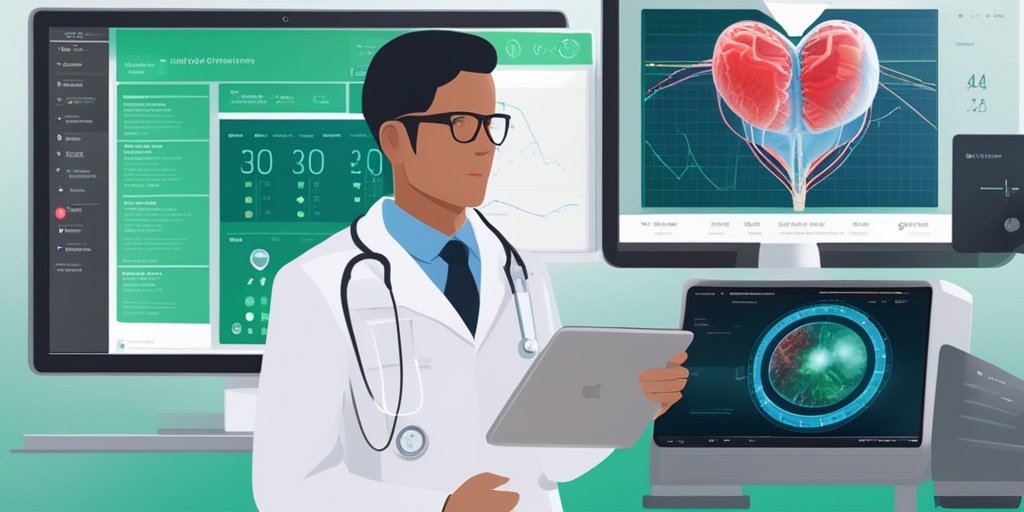⚡ Quick Summary
The study by Anaya et al. explores the use of ChatGPT as a resource for medical education in cardiology, specifically focusing on heart failure. It highlights the need for further research to address replicability challenges and optimize the performance of large language models (LLMs) in healthcare contexts.
🔍 Key Details
- 📊 Focus Area: Heart failure education resources
- 🧩 Institutions Compared: AHA, ACC, HFSA
- ⚙️ Technology Used: ChatGPT
- 🏆 Contribution: Addresses challenges in reproducibility of LLM studies
🔑 Key Takeaways
- 💡 ChatGPT shows promise as a medical education tool in cardiology.
- 📚 Readability metrics of ChatGPT-generated content were compared with established institutions.
- 🔍 Study emphasizes the importance of reproducibility in LLM evaluations.
- 🛠️ Suggestions provided for optimizing response sampling in future studies.
- 🌟 Further research is necessary to enhance understanding of LLMs in healthcare.
- 📈 Potential impact on medical education and decision-making processes.
- 🌍 Study published in the journal Curr Probl Cardiol.
- 🆔 PMID: 39393621.

📚 Background
The rapid advancement of large language models (LLMs) like ChatGPT has opened new avenues in various fields, including healthcare. These models have demonstrated an ability to generate human-like text, making them valuable tools for medical education. However, their integration into cardiology education raises questions about readability, accuracy, and replicability of the generated content.
🗒️ Study
Anaya et al. conducted a study comparing the readability of medical education resources on heart failure generated by ChatGPT with those from major U.S. institutions such as the American Heart Association (AHA), American College of Cardiology (ACC), and Heart Failure Society of America (HFSA). This comparison aimed to evaluate the effectiveness of LLMs in producing educational materials that are accessible and informative for medical professionals and students.
📈 Results
The findings of the study indicate that while ChatGPT-generated content is a valuable resource, there are significant replicability challenges that need to be addressed. The authors suggest that optimizing the sampling of responses from LLMs could enhance their utility in medical education. Overall, the study provides a meaningful contribution to the literature on LLMs in cardiology, although it highlights the necessity for more comprehensive evaluations.
🌍 Impact and Implications
The implications of this study are profound. By leveraging technologies like ChatGPT, we can potentially transform medical education in cardiology, making it more accessible and engaging. However, addressing the challenges of replicability and optimizing model performance is crucial for ensuring that these tools can be reliably used in clinical and educational settings. The future of medical education may very well depend on the successful integration of AI technologies.
🔮 Conclusion
The study by Anaya et al. underscores the potential of ChatGPT as a resource in cardiology education while also pointing out the need for further research to overcome existing limitations. As we continue to explore the capabilities of LLMs in healthcare, it is essential to focus on enhancing their reliability and effectiveness. The journey towards integrating AI in medical education is just beginning, and the possibilities are exciting!
💬 Your comments
What are your thoughts on the use of AI in medical education? Do you believe tools like ChatGPT can enhance learning in cardiology? Let’s start a conversation! 💬 Leave your thoughts in the comments below or connect with us on social media:
ChatGPT as a Medical Education Resource in Cardiology: Mitigating Replicability Challenges and Optimizing Model Performance.
Abstract
Given the rapid development of large language models (LLMs), such as ChatGPT, in its ability to understand and generate human-like texts, these technologies inspired efforts to explore their capabilities in natural language processing tasks, especially those in healthcare contexts. The performance of these tools have been evaluated thoroughly across medicine in diverse tasks, including standardized medical examinations, medical-decision making, and many others. In this journal, Anaya et al. published a study comparing the readability metrics of medical education resources formulated by ChatGPT with those of major U.S. institutions (AHA, ACC, HFSA) about heart failure. In this work, we provide a critical review of this article and further describe approaches to help mitigate challenges in reproducibility of studies evaluating LLMs in cardiology. Additionally, we provide suggestions to optimize sampling of responses provided by LLMs for future studies. Overall, while the study by Anaya et al. provides a meaningful contribution to literature of LLMs in cardiology, further comprehensive studies are necessary to address current limitations and further strengthen our understanding of these novel tools.
Author: [‘Pillai J’, ‘Pillai K’]
Journal: Curr Probl Cardiol
Citation: Pillai J and Pillai K. ChatGPT as a Medical Education Resource in Cardiology: Mitigating Replicability Challenges and Optimizing Model Performance. ChatGPT as a Medical Education Resource in Cardiology: Mitigating Replicability Challenges and Optimizing Model Performance. 2024; (unknown volume):102879. doi: 10.1016/j.cpcardiol.2024.102879